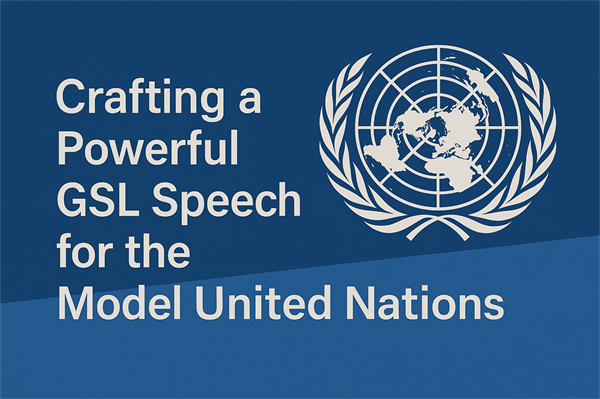Model United Nations: Shaping Future Global Leaders
Model United Nations (MUN) is an academic simulation of the United Nations that gives students the opportunity to step into the shoes of diplomats and world leaders. Participants, known as delegates, represent different countries and engage in debates, negotiations, and discussions on pressing global issues. Through this process, they learn the art of diplomacy, policy-making, and problem-solving in a dynamic and interactive environment.
MUN conferences typically revolve around committees that mirror real UN bodies, such as the Security Council, General Assembly, or World Health Organization. Each delegate is assigned a country and required to research its policies, foreign relations, and perspectives on specific agenda topics. This preparation helps participants understand international affairs deeply while developing critical thinking and research skills.
One of the most valuable aspects of MUN is its focus on public speaking and debate. Many students begin their MUN journey feeling nervous about addressing large audiences, but as they participate, they gain confidence in expressing their thoughts clearly and persuasively. The ability to present ideas logically, backed by facts and evidence, prepares them for future academic and professional challenges.
Another significant benefit of MUN is teamwork and collaboration. Delegates must form alliances, draft resolutions, and build consensus to address global challenges. This teaches them the importance of negotiation and compromise—essential qualities for leadership in any field. Unlike traditional competitions, MUN does not reward individual victories alone; instead, it emphasizes collective progress and diplomatic solutions.
MUN also encourages cultural awareness and empathy. By representing countries other than their own, delegates are challenged to think beyond their personal beliefs and understand diverse worldviews. This global mindset fosters respect, tolerance, and open-mindedness—values that are crucial in today’s interconnected world.
The skills gained through MUN extend far beyond the conference room. Students enhance their writing abilities by drafting position papers and resolutions. They strengthen leadership qualities by taking initiative in committees or guiding teams. They also develop problem-solving skills by analyzing complex international issues and proposing innovative solutions.
For many, MUN becomes more than just an extracurricular activity—it is a transformative experience. It inspires students to take interest in global affairs, pursue careers in international relations, law, diplomacy, or social change, and become responsible global citizens.
In today’s world, where global challenges such as climate change, security threats, economic crises, and humanitarian concerns demand cooperative action, the lessons learned from MUN are more relevant than ever. By equipping young people with knowledge, confidence, and diplomacy, MUN nurtures a generation ready to tackle real-world problems with vision and responsibility.
Conclusion
Model United Nations is not simply a platform for debate; it is a training ground for future leaders. It teaches students to research deeply, speak confidently, collaborate effectively, and think globally. Whether they pursue diplomacy or other careers, the skills and values developed through MUN remain invaluable throughout their lives.

Comments
Post a Comment